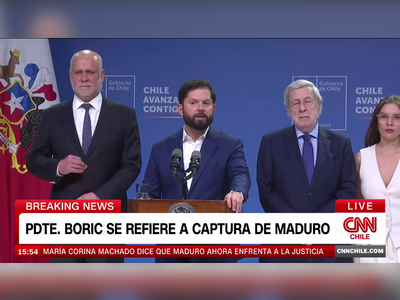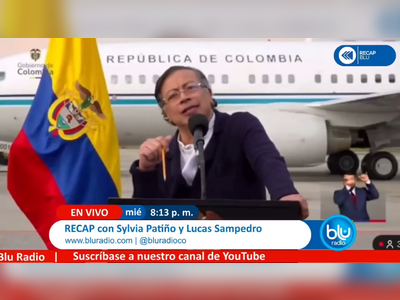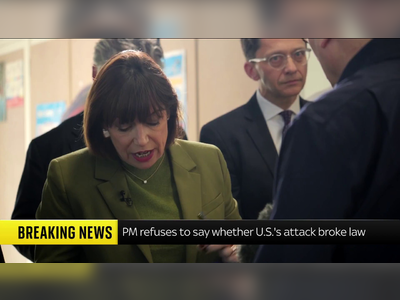Mónica Taylor Appointed as New President of Costa Rica's Social Security System
The unexpected appointment of Mónica Taylor as President of the Costa Rican Social Security Fund marks a significant shift in the country's healthcare leadership.
In a surprising announcement on January 8, 2025, Mónica Taylor was officially named the new executive president of the Caja Costarricense de Seguro Social (CCSS), Costa Rica’s Social Security Fund.
This change in leadership was announced by President Rodrigo Chaves during a press conference, where he appointed Taylor as the successor to Marta Esquivel, who has been suspended amid an ongoing investigation into alleged corruption.
Taylor, previously known for her role as a political advisor within the presidential office, will leave Casa Presidencial to assume her new responsibilities at the helm of one of the country’s most critical public institutions.
Mónica Taylor's appointment came as a surprise to many, given her relatively low profile in the political arena.
According to President Chaves, Taylor is a seasoned professional with a legal background, holding a licentiate degree in Law and a master's in Public Law, alongside studies in Tax Law.
With 24 years of experience in public positions, the specifics of which remain undisclosed by the presidential office, Taylor’s experience and expertise have earned her the trust of the President during her tenure as a political advisor.
During the announcement, President Chaves expressed high praise for Taylor, acknowledging the significant impact her departure from the presidential office will have.
"Her departure will create a significant void in my office's capacity," Chaves noted, emphasizing the importance of the CCSS.
"I want to announce that she has had the kindness and courage to accept this challenge.
Her bravery parallels that of Marta," Chaves added during his speech.
Marta Esquivel, the former president of the CCSS, has been suspended due to suspicions of involvement in a corruption case related to the awarding of contracts for 138 EBAIS (Basic Health Care Teams), and has since been appointed as Minister of Planning.
This transition underscores the dynamic and often unpredictable nature of political appointments in Costa Rica, impacting both the CCSS and broader governmental operations.
Efforts to acquire comprehensive qualifications of the new executive president from Casa Presidencial have been deferred, pending the official confirmation of her appointment.
Meanwhile, the country’s leadership anticipates that Taylor's legal acumen and political advising experience will be instrumental in steering the CCSS through current challenges, reflecting broader shifts in governance to assure public trust and transparency.
This change in leadership was announced by President Rodrigo Chaves during a press conference, where he appointed Taylor as the successor to Marta Esquivel, who has been suspended amid an ongoing investigation into alleged corruption.
Taylor, previously known for her role as a political advisor within the presidential office, will leave Casa Presidencial to assume her new responsibilities at the helm of one of the country’s most critical public institutions.
Mónica Taylor's appointment came as a surprise to many, given her relatively low profile in the political arena.
According to President Chaves, Taylor is a seasoned professional with a legal background, holding a licentiate degree in Law and a master's in Public Law, alongside studies in Tax Law.
With 24 years of experience in public positions, the specifics of which remain undisclosed by the presidential office, Taylor’s experience and expertise have earned her the trust of the President during her tenure as a political advisor.
During the announcement, President Chaves expressed high praise for Taylor, acknowledging the significant impact her departure from the presidential office will have.
"Her departure will create a significant void in my office's capacity," Chaves noted, emphasizing the importance of the CCSS.
"I want to announce that she has had the kindness and courage to accept this challenge.
Her bravery parallels that of Marta," Chaves added during his speech.
Marta Esquivel, the former president of the CCSS, has been suspended due to suspicions of involvement in a corruption case related to the awarding of contracts for 138 EBAIS (Basic Health Care Teams), and has since been appointed as Minister of Planning.
This transition underscores the dynamic and often unpredictable nature of political appointments in Costa Rica, impacting both the CCSS and broader governmental operations.
Efforts to acquire comprehensive qualifications of the new executive president from Casa Presidencial have been deferred, pending the official confirmation of her appointment.
Meanwhile, the country’s leadership anticipates that Taylor's legal acumen and political advising experience will be instrumental in steering the CCSS through current challenges, reflecting broader shifts in governance to assure public trust and transparency.











